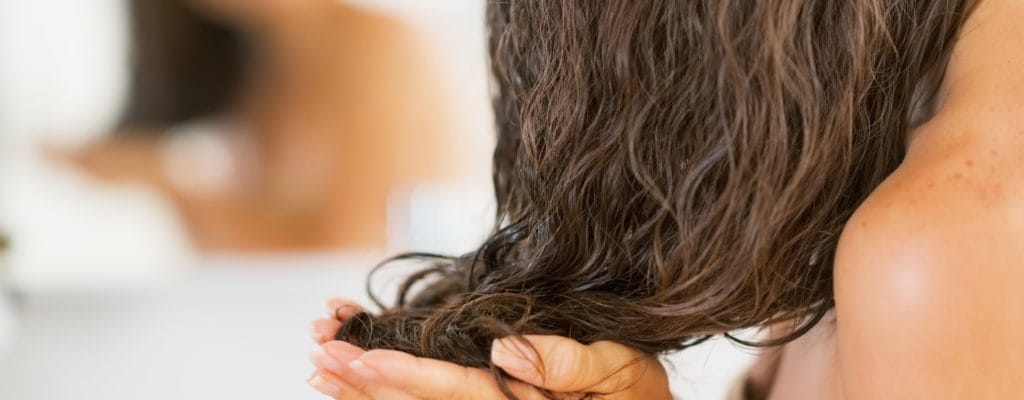
The hair is the human angle. Most women are always interested in and take care of the beauty of their hair. By the time of pregnancy, the scientific and safe hair care is more essential than ever.
During pregnancy, a woman's hair needs proper care. Without the necessary knowledge of how to take care of hair scientifically, the health of the fetus can also be affected.
1. Changes in hair during pregnancy
Pregnancy affects a woman's body a lot. Besides the adverse effects such as weight gain and morning sickness , there are still good effects on the woman's body. One of the places to benefit from pregnancy is hair.
Hair usually develops in three phases: rapid growth, remaining state and loss. During these periods, hair loses 100 strands a day on average. During pregnancy, a woman's body produces more hormones that change hair circulation. Hair grows but does not fall out. This is why pregnant mothers' hair looks longer and thicker than usual.
Sometimes a woman's hair will get more or less frizzy during or after pregnancy. The mechanism behind this phenomenon is still a mystery. However, scientists believe that changes in hormones in a woman's body are responsible for changing the shape of the hair follicles and affecting the quality of the hair.
2. Should hair chemicals be avoided?
If pregnant mothers still dye, straighten, curl or condition their hair , you may wonder if you should stop these activities with your hair during pregnancy. Some doctors advise to stop, others say that it doesn't matter. However, pregnant mothers should not chemically treat their hair within the first three months of pregnancy and then they can still do their hair normally.
Why are there so many different opinions? There is very little research examining the effects of hair coloring and the chemicals used on hair on pregnant women. However, it is still possible that harmful substances through the pores enter the scalp when used and then into the bloodstream, affecting the health of the fetus.
If pregnant women are concerned about the chemicals that can be harmful but still want to have beautiful dyed hair, they can also consider using hair dye made from natural ingredients. Pregnant mothers should not use hair straighteners containing keratin because these products contain formaldehyde, which is very harmful to the fetus.
3. Hair care during pregnancy
You don't have to change your shampoo, conditioner, hairspray, hair gel, styling foam, or drying and curling routine during pregnancy, unless you are using a dandruff shampoo. Pregnant mothers should consult a doctor because there are some types of dandruff shampoo that contain substances that are not good for the fetus.
Some pregnant women may be allergic to the scent and there are many hair styling products that contain perfumes. If the smell of shampoo or hairspray you are using makes your mother feel uncomfortable because it is too strong, you should switch to an odorless product line.
4. The prospect of postpartum hair
The best period of a woman's haircut ends a few months after your baby is born. The tight strands of hair on the scalp begin to fall out. You will experience a lot of hair loss about three to six months after giving birth. Hair loss can be more or less depending on the person.
Rest assured because your hair will grow back to normal after that. Hair loss in the postpartum period is normal and shows a healthy mother's body.
The correct hair care not only affects the woman's appearance, but also can be dangerous to the fetus. That is why pregnant mothers should learn carefully before deciding what to do with their hair.












